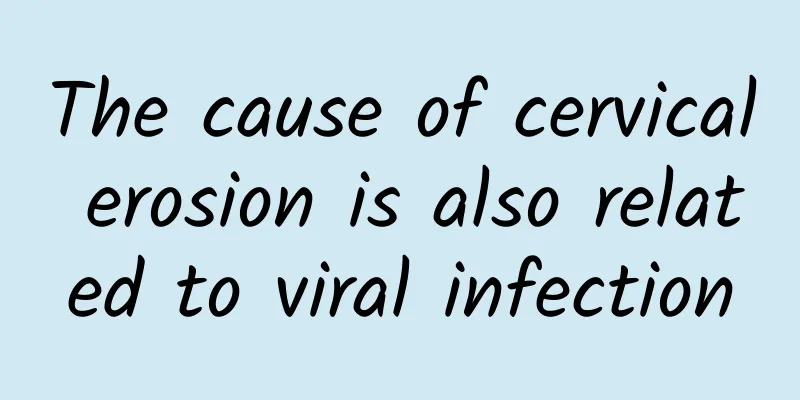What is the cause of vulvar itching during ovulation and how to deal with it

|
Vulvar itching during ovulation may be caused by increased secretions, or by vulvitis, vulvar eczema, vaginitis, tinea cruris, vulvar sclerosus and atrophic lichen. Depending on the specific cause, general treatment, drug treatment or physical therapy should be given under the guidance of a doctor. 1. Increased secretion and stimulation: During ovulation, the hormone level in the body increases, which leads to increased vaginal secretions. If the excessive secretions are not cleaned in time after discharge, it will irritate the vulvar skin and cause itching. Generally, it can be cured by washing with warm water and changing underwear frequently. 2. Vulvitis: Inflammation of the vulvar skin or mucous membrane caused by pathogen infection or adverse stimulation. After ovulation, the secretion increases and obvious itching symptoms occur, accompanied by discomfort such as vulvar redness, swelling, and pain. You can use erythromycin ointment, fusidic acid cream, clotrimazole cream and other drugs for treatment according to the doctor's advice. 3. Vulvar eczema: It is an allergic skin disease of the vulva caused by various causes, which can cause symptoms such as flushing, itching and rash in the vulva. You can use calamine lotion, 3% boric acid solution, flufenamic acid butyl ointment and other drugs for treatment according to the doctor's advice. 4. Vaginitis: Vaginitis can cause increased vaginal secretions. The increased inflammatory secretions will irritate the vulva and cause itching, often accompanied by vaginal itching, leucorrhea odor and other symptoms. You can test the leucorrhea routine, and use metronidazole suppositories, bisoprolol suppositories, nitrofuratel vaginal soft capsules and other drugs as prescribed by the doctor. 5. Tinea cruris: A skin disease caused by fungal infection, which can cause obvious itching on the inner thigh and vulva, as well as symptoms such as erythema and desquamation. You can use antifungal drugs such as clotrimazole cream, ketoconazole ointment, butenafine ointment and other drugs as prescribed by your doctor. 6. Vulvar lichen sclerosus and atrophic lichen: a disease of vulvar skin and mucosal pigmentation caused by autoimmune, genetic, and infectious factors, which may cause itching, burning sensation, vulvar skin lesions, etc. You can follow the doctor's advice to use tacrolimus ointment, compound vitamin A ointment, triamcinolone acetonide econazole cream and other drugs to relieve the symptoms, or do physical therapy such as vulvar focused ultrasound and microwave. It may also be caused by condyloma acuminatum, vulvar cancer, etc. It is recommended to pay attention to the hygiene of the vulva and avoid scratching. If the symptoms do not improve, you need to go to the hospital gynecology department in time to find out the cause and follow the doctor's advice for treatment. |
<<: Can I eat green peppers if I have vaginitis?
>>: What causes endometrial polyps?
Recommend
Experts tell you what menopause means
Since gonadal function gradually develops from ma...
Will cervical erosion affect pregnancy? Will cervical erosion cause infertility?
Although cervical erosion is not a serious diseas...
Dietary health knowledge for uterine fibroids
Uterine fibroids are a common gynecological tumor...
Will ovarian cysts recur after surgery?
The treatment methods for ovarian cysts are gener...
Why do ovarian cysts appear
Ovarian cysts may be caused by dietary factors, e...
What are the symptoms of uterine fibroids?
What are the symptoms of uterine fibroids? Uterin...
Does pelvic inflammatory disease cause bleeding?
Do pelvic inflammatory disease symptoms cause ble...
What causes pelvic endometriosis and how to prevent it
What causes pelvic endometriosis and how can it b...
Experts briefly analyze the common classification of cervical erosion
According to the time of occurrence of cervical e...
How to treat an enlarged cervix
How to treat cervical hypertrophy? Cervical hyper...
What are the symptoms of cervical warts?
Genital warts may be familiar to many people, but...
What is the normal thickness of the endometrium?
The thickness of the endometrium in early pregnan...
What is a good way to eliminate uterine fibroids? Recipes to eliminate uterine fibroids
What is a good way to eliminate uterine fibroids?...
How to relieve pain during menstruation
Ways to relieve pain during menstruation include ...
What medicine is used for cervical erosion grade I
What medicine is used for cervical erosion grade ...









